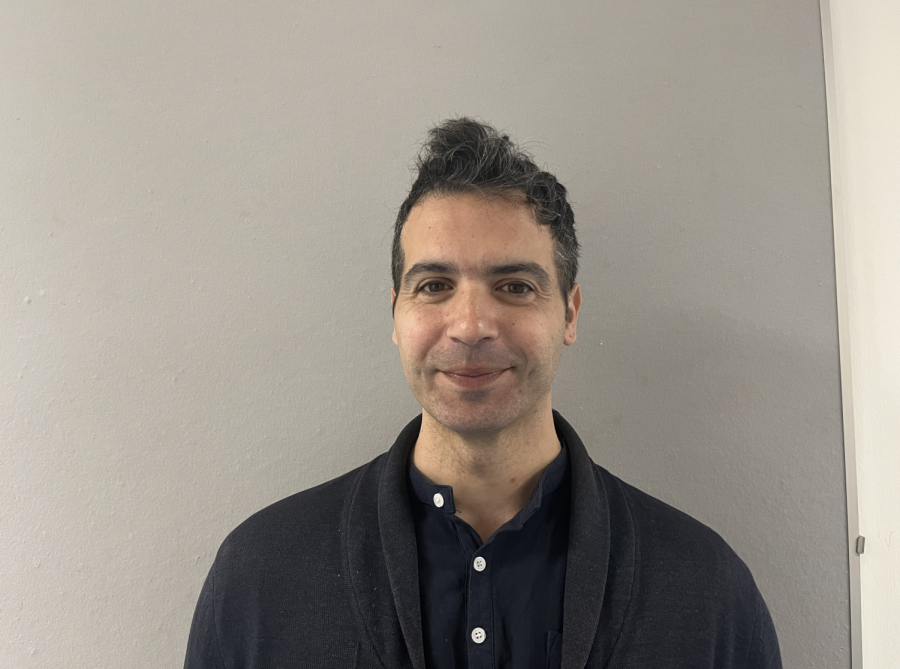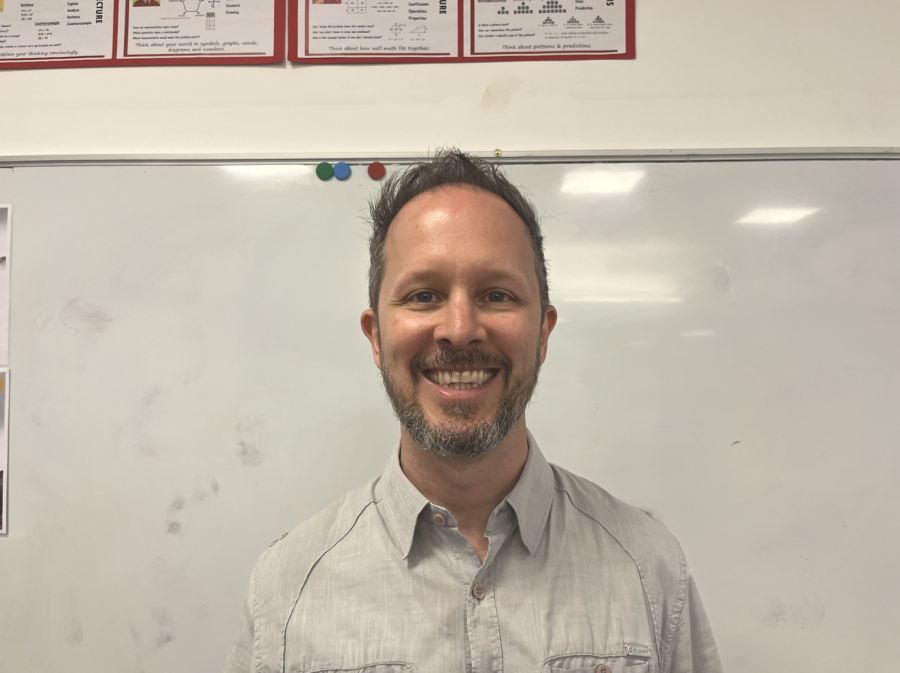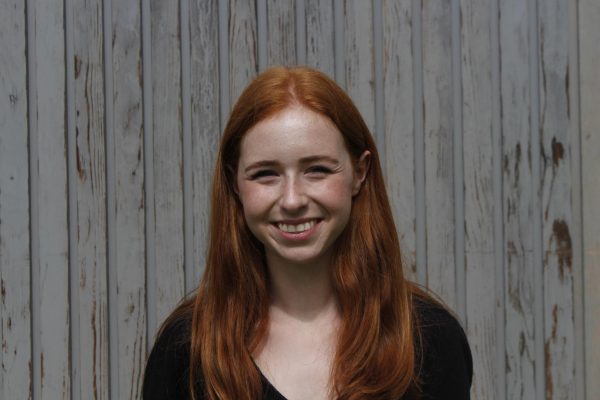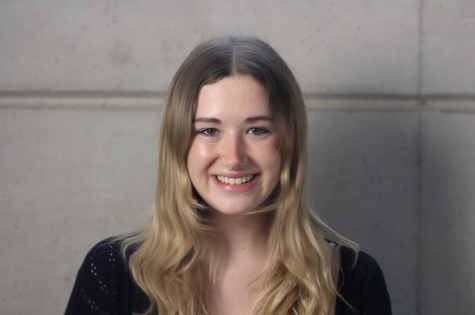“I was a homeboy,” Math Teacher Tony Bracht said. “I never expected to be moving away from Texas, let alone overseas.”
With a childhood in Houston, Texas, Bracht said he attended a “multiculturally diverse” high school. After focusing on higher-end mathematics during his academic journey, Bracht graduated from the University of Texas with a degree in mathematics, planning his career as a math teacher.
“Finding my major was definitely a longer journey in college,” Bracht said. “I was a political science and economics major for a while, but then decided to drop politics and I began to consider computer science, but eventually decided to become a teacher all in my first semester of freshman year.”
Bracht said he appreciates the U.S. college system’s flexibility, as it allowed him to discover his passions and future career.
“It was the luxury of the U.S. system compared to a system like the U.K. where you really do have to specialize and stick with it,” Bracht said. “I’m grateful I had the option to switch majors throughout the beginning.”
Freshly out of school, Bracht began teaching at Johnston High School, part of the Liberal Arts Academy in Austin. He said though it was “a challenge to work there” as the school environment was nowhere near as academically motivated as the student body at ASL, he still enjoyed his experience as a first-time teacher.
“I was inspiring students that didn’t really consider math their number one passion and also a lot of students that just didn’t really buy into school,” Bracht said. “You’re battling with all of these variables, which makes it really difficult to concentrate on high-end mathematics, but it was a really good growth experience for me as a teacher.”
I was inspiring students that didn’t really consider math their number one passion and also a lot of students that just didn’t really buy into school.
However, as Bracht taught in Texas, his school underwent structural changes as the Liberal Arts Academy separated from the main body of the school. He was left with a choice to continue with the primary curriculum or to follow the academy.
Bracht said making the choice equates to “having divorced parents,” as he enjoyed both programs equally despite their differences. Nevertheless, he said he soon found an alternative option, which required him to change school and country entirely. After hearing of the job opening at ASL, Bracht said he “applied on a total whim.”
With new chapters of his life, such as his recent engagement of the time, Bracht said he viewed coming to London as an exciting but temporary journey. Whether it was the differences in the school system or the change to “a completely different city on a cultural level,” he said he missed Texas during his first years here.
“I thought it was just gonna come for two years and have a little bit of adventure and then go back to Texas, but things turned out to be very different,” Bracht said.
In 2005, after the birth of his son, Bracht chose to move back home to Texas and begin work as a pension analyst, studying for various exams that would allow for this change in career path. He said it was “slightly challenging to just try and transition into this nonacademic field.”
However, over the course of the years spent outside of the school, Bracht said he began to miss the “student interactions and educational environment” and began to look into teaching once again.
“It was a great experience, but it was not teaching, and for a variety of reasons, I started missing being a math teacher, so then I reapplied,” Bracht said. “Being a teacher and being able to start passions for higher-end mathematics and help those passions grow in students is so rewarding.”
Bracht said the school provides several benefits to its teachers, such as its financial aid for master’s degrees. After rejoining the school community, he applied for his master’s with the school’s support, graduating with a degree in Educational Leadership.
Being a teacher and being able to start passions for higher-end mathematics and help those passions grow in students is so rewarding.
Bracht said he recognized the “mindset differences” between his students at his previous schools. With a “higher degree of self-sufficiency,” he said there was no longer a need to continuously “push students to push themselves.”
Bracht also said he has noticed a greater variety within the school’s both curricular and extracurricular activities.
“I’ve seen that ASL has always valued a mixture of not just academics, but also extracurricular interests and just students that have all different directions and desires to do personalized things for their future,” Bracht said.
On the contrary, Bracht said he has noticed shifts in the student mentality within the school, noting a greater willingness to ask for help and support for academic struggles.
“Now, when a student is struggling, it becomes a community effort to try and help, there’s a greater emphasis on external support rather than each individual student dealing with it themselves,” Bracht said.
In addition to teaching, Bracht said he has “had the extreme pleasure” of advising the Student Council for 17 years, but said there haven’t been as many changes within the Council in comparison to the school’s curriculum and structure.
“They’ve always been dealing with the politics of the school and ensuring student voices are heard across the high school,” Bracht said.
I’ve seen that ASL has always valued a mixture of not just academics, but also extracurricular interests and just students that have all different directions and desires to do personalized things for their future.
Nonetheless, Bracht said certain tangible and abstract shifts did take place throughout his advising, partly due to a larger change within the school system.
“As the school grew in numbers, we needed more representation for each grade, so we chose to have six council representatives per grade instead,” Bracht said. “There were too many people and too many voices to amplify with only four members.”
He said one of the predominant reasons he enjoys his work with the council is for the aspects of student administration and management, taking the desires of the student body into their own hands.
“[The Council] takes initiative and it’s all about student leadership, making the change the students want to see, often going beyond what faculty wants,” Bracht said.
Additionally, Bracht said he loves working with a committee that further helps students improve collaboration and teamwork abilities to problem solve.
“Student Council also really helps students learn organization and communication skills to work with members of the Council, other students in the building and also the adults in the building,” Bracht said. “These strategies that they’re constantly practicing all work together in efforts to accomplish group goals.”
Reflecting on past organized events, he said the Student Council used to arrange events with a required entry fee for all attendees, using the profit for later necessities and activities for the school. However, despite the benefits, Bracht said the bigger matter was “complete inclusivity,” removing cost from all events for greater accessibility for all students.
“We wanted the social events at school to be accessible to people throughout the community without stressing out about money,” Bracht said.
Overall, despite the school’s greater focus and motivation on academics, Bracht said there is often a student desire to “jump through hoops.” He said the school’s learning mindset is “transactional” rather than genuinely reflecting and focusing on learning.
“Students should spend more energy trying to really ‘get it’, actually learn, think, reason and problem solve,” Bracht said. “It will develop those abilities that are going to be generalizable to whatever you choose to do in life.”
Bracht said if students were to recenter their attention to the skills required to be successful in a particular subject, a stronger degree of subject comprehension would occur, in turn allowing students to accomplish tasks of increased difficulty to a better extent.
“Learning isn’t a straightforward process,” Bracht said. “If students really look at the higher level thinking that goes on behind the information that we teach them, that’s when they will see the marks of success.”







